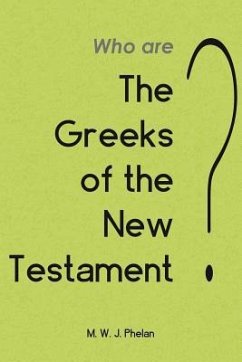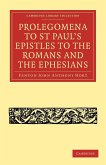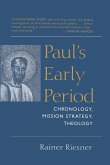Shortly after the author's conversion to Christianity he began to read the Scriptures systematically and became curious about the identity of a group of people who were referred to as Greeks. Why were they called Greeks, when clearly they were not from Greece at all? Who were they? And why did they seem to be so important? He quickly established the standard answer, that these Greeks were simply Gentiles or non-Jews. But if the word Greek was a synonym for Gentile, then who were the Barbarians and the Scythians? Undoubtedly they were Gentiles as they were not Israelites, yet they were clearly distinguishable from the Greek! However, this belief is not based on analysis of the facts. In the middle of the 1980s. the author found a very persuasive argument, that the Greeks of the New Testament were not Gentiles at all, but were dispersed Israelites, but it seemed that no-one had undertaken a comprehensive examination of the subject; an examination that would be able to explain how, why, where, and when, Dispersed Israelites became known as Greeks. This is the author's humble attempt to do just that, and is mostly original research. He would be pleased indeed, if it were to provoke further inquiries
Hinweis: Dieser Artikel kann nur an eine deutsche Lieferadresse ausgeliefert werden.
Hinweis: Dieser Artikel kann nur an eine deutsche Lieferadresse ausgeliefert werden.








